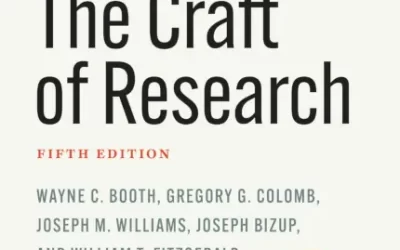Anyone who has worked in the peer review system knows that things are in a state of flux right now. It is a system that has seen a heavy, almost overwhelming, burden on mostly volunteer reviewers. A study in 2020 analyzing peer review across all academic journals estimated that globally reviewers spent close to 100 million hours working on reviews in 2020 alone. Based on estimated hourly wages of most researchers, it was determined that American peer reviewers completed $1.5 billion worth of work on a volunteer basis (that is Avengers box office money!). The study averaged another $1 billion in volunteer work from just reviewers in the United Kingdom and China.

That’s a lot of unpaid work and manuscript submissions for most journals aren’t slowing down. We’ve written before about reviewer fatigue and how editors and editorial staff can try and encourage timely peer reviews, but the crisis continues to evolve. A researcher, who later became an editor, summarizes their problems with the broken system by pointing out that while peer review is absolutely necessary for scholarly journals to operate, completing reviews usually provide no direct reward for researchers. “Plainly speaking, virtually no one in the history of professional science has been promoted or meaningfully rewarded because they provide stellar reviews of others’ work. Those who spend hours improving the work of their peers are often doing so as a favor.”
It’s no wonder that editors are continuing to find that they need to invite more and more reviewers to get the bare minimum of qualified reviewers to push manuscripts through the system. A 2023 study showed that the average number of reviewers contacted by editors to complete a peer review has steadily increased each year since 2016. This struggle is particularly evident for younger and early career editors compared to more senior editors who may have more connections in various fields of studies. Needing to invite more reviewers leads to increased time between initial submission and first decisions, a chain reaction that can severely impact eventual publication timetables.
So, what can publishers and journal societies do to reverse these trends? Well, there are no easy solutions, but here are a few suggestions that could reduce the burden on reviewers:
- Institute a review rewards program. We’ve previously discussed paying peer reviewers, whether with a flat monetary rate or journal swag and rewards, but this is something that not all journals can afford. Review rewards programs are more feasible for a lot of journals. Many researchers have recommended that journals consider honoraria or publishing credits for either individual peer reviewers or the institutions of reviewers. This can alleviate costs for institutions particularly those with higher numbers of minority researchers or institutions in low- and middle-income countries and can lead them to encourage more of their researchers to complete reviews.
- Use AI wisely to cut down on peer review time. AI has infiltrated peer review in multiple ways. Some reviewers have used ChatGPT to write entire reviews, which is of course not something we advocate. However, using more advanced AI tools to check for potential plagiarism, image manipulation, grammar and spelling issues, and correct statistical work is a smarter and more ethical use of these tools. Having journal societies use AI to check for these things before even sending manuscripts to reviewers can allow reviewers to better focus their energies on the science and content within articles instead of more time-consuming minor details.
- Increase the number of potential reviewers through mentorship programs. The reviewer fields have seemingly become more and more specialized in recent years. The review burden for some journals has seemingly fallen now on just a handful of senior reviewers and as time goes on, these reviewers have less incentive to complete reviews as their jobs become more secure. In order to fight back against this, many journals and scholarly societies are launching mentorship programs, sometimes lasting 6 months to a year, to encourage senior scientists to work with junior scientists to teach them proper structure for peer reviews in an effort to expand the reviewer pool. These programs can vary from journal to journal but usually include building a relationship between a senior researcher and a new career researcher and having them review 3-4 papers together to understand the terminology and elements of a good scholarly review. A recent study of a 6-month mentorship program showed positive improvements on Reviewer Quality Index scores among younger and early career researchers as well as increased confidence among these reviewers. This can greatly help to incentivize new reviewers while also reducing the burden on senior researchers.
There is no easy answer to solving the “reviewer crisis.” The amount of time and lost wages going into peer review is astounding and cannot be ignored. The increasing burden on reviewers leads some reviewers to looking for easy options including using AI tools to draft entire comments, which is not ideal or ethical Paying peer reviewers seems like an easy solution, but is not a feasible option for all journals. Instead, incentivizing institutions to encourage their reviewers to agree and submit timely reviews could be a better path. Also, embracing the ethical use of AI to reduce some review burden is also an important step as is providing mentorship and training for the next generation of reviewers.
What are some strategies you and your journal have used to combat reviewer fatigue and incentivize reviewers? Let us know in the comments below.
By: Chris Moffitt
Chris is a Managing Editor at Technica Editorial




